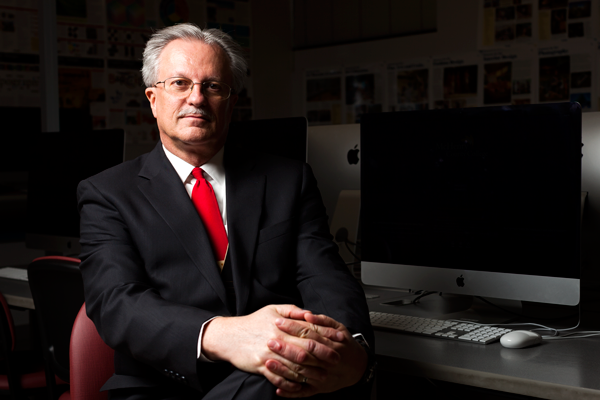McHenry County College’s Three-Year Plan
The first thing Dr. Allen Butler had to do when coming to work for McHenry County College (MCC) as the school’s new CIO was develop a three-year plan to update the college’s technology.
Butler’s plan for the community college fell into four main components: create anywhere, anytime access to information; improve cost and flexibility through desktop virtualization; deliver a quality ERP system implementation; and foster business continuity by improving and automating systems and processes.

From Music to Tech
Dr. Allen Butler earned his master’s degree in music before teaching music for three years, but technology always played a part in his education. Even when he was studying music, he was able to replace a foreign language with a computer language for his degree requirement.
He then earned a doctorate from the University of Wisconsin in Madison, in the university’s computer-science program, which was heavily involved with the music school due to the need for computer-assisted instruction.
One of the music school’s graduate requirements was for students to learn how to program. Butler used his programming skills to help a professor build a whole music-theory and ear-training program based around computers.
Step-By-Step Digital Transformation
The first step, to make information more accessible across campus, was a goal that Butler felt was essential for the college to achieve in order to remain competitive. “Whether you’re a college or business, people just want access to information and they want to get it in a variety of ways, whether it’s from a computer, or from your tablet, or from your smartphone,” he says.
The second step is strongly related to the first in that it helps people get the information when and where they want. “Virtualization has hit the industry tremendously over the last few years, and that’s really the main way to deliver data to people,” Butler says. “Students don’t want to have to come on campus, sit down at a college computer, and get their information that way. They want to be able to work on their lessons at two in the morning on a Sunday.”
In some cases, students might not be able to make it to campus during the day. “We have a lot of adult learners,” Butler says. “They can’t come to campus during the normal work hours because they’re working, and maybe they’re taking a night class.”
Thanks to the new desktop virtualization process, “any kind of device you might have, as long as it’s got an Internet connection, you can connect into our college private cloud and get the same desktop and the same application software that you would get if you were sitting at a computer here on campus,” Butler says.
It was the third step of implementing a new ERP system, according to Butler, that caused the most problems for the college—but it was a critical step. Colleges use ERP programs for their administrative systems to run “the financials, the accounting system, payroll, student information systems,” and similarly vital systems, Butler explains.
Implementing A New ERP System
All of these are necessary to run a school, so it’s no surprise that when Butler came to work at MCC, implementing a new ERP system was his number-one goal. “They had one that was at least twenty years old,” he says. “So it was not able to do what the college needed it to do.”
Having implemented many ERP systems over his long career in IT management, Butler knew this was not going to be a small task. “ERP system implementations are huge,” he says. “They’re not trivial projects. They’re always a multiyear thing.”
MCC had already identified some problems with the old ERP system before Butler showed up for his first day of work. In fact, the administration had already selected a new ERP system around the time Butler came to work for MCC, and he was given the chance to approve the new system before the college made its purchase.
“When you select a major system, it’s difficult to implement because there are so many moving parts,” Butler says. “It’s hard to manage and keep track of all those moving parts, and it invariably requires the organization to change the way they do things.” Implementing the new ERP system at MCC was no different.
“A number of our business processes and our educational processes had to change because you can’t always just reconfigure the system to do it the way you want it,” Butler says.
The new ERP system is now up and running smoothly, and its results have created more freedom for both students and staff. “That’s been a very big positive for us because it doesn’t tie students [to the campus]—and [it’s] the same thing with staff workers,” Butler concludes. “They don’t necessarily have to be here to get at the systems they need.”
Photo by Ryan Klos
